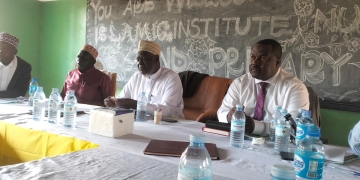
is a Political Sociologist
Dear Colleagues,
African social scientists must confront an uncomfortable reality: they are entangled in an intellectual dependency that undermines their claim to be independent thinkers. While they readily critique the inadequacies of Western political models for African societies, their arguments rest largely on the same Western thinkers they seek to displace. Names like Karl Marx, Rousseau, Freud, and Piaget dominate their discourse. But where are the African voices? Where are the indigenous thinkers who should be guiding the intellectual future of the continent?
To claim the title of intellectuals, it is not enough to deconstruct Western paradigms; they must build African ones. Yet, many of these scholars repeatedly draw from the likes of Immanuel Kant, Thomas Hobbes, John Locke, and Max Weber, as if these foreign thinkers hold the exclusive understanding of societal structures. This intellectual mimicry is an indictment of Africa’s academic independence. How can a continent with such rich history and culture continue to lean so heavily on foreign sources for intellectual legitimacy?
Africa has produced its own formidable thinkers, but they remain on the margins of the continent’s intellectual debates. Cheikh Anta Diop argued passionately for the African origin of civilisation, while Frantz Fanon’s work on decolonisation remains vital for understanding the post-colonial experience. Ngũgĩ wa Thiong’o speaks powerfully on the politics of language, and Kwasi Wiredu offers an African approach to democracy. John Mbiti’s insights into African spirituality provide profound reflections on communalism, captured in his famous assertion, “I am because we are, and since we are, therefore I am.” Yet, African scholars rarely elevate these thinkers beyond the occasional footnote, choosing instead to centre Western theories and philosophies.
There is a growing trend of curriculum reform across Africa’s educational institutions, but what purpose does this serve if the content continues to be dominated by Western epistemologies? While the structure of curricula may change, the substance remains colonial in its essence. If African scholars are serious about decolonising education, they must ask themselves: What materials are they proposing to use? What will replace the Western canon, and how will they define the study of epistemology in an African context? Without addressing these fundamental questions, reforms are nothing more than cosmetic.
The real challenge lies in how African intellectuals define knowledge itself. Can they break away from Eurocentric understandings of what constitutes knowledge, or will they continue to adhere to foreign standards? The study of epistemology cannot be left to those who view Africa through an external lens. African scholars must assert their own understanding of knowledge, one that reflects the continent’s history, values, and lived experiences.
As the senior generation of African social scientists nears the twilight of their careers, they must ask themselves what legacy they will leave. Will future African scholars inherit the same critiques of Western models, or will they be provided with an intellectual framework that is truly African in nature? The responsibility to influence this intellectual shift lies in the hands of those who have spent decades navigating these systems.
It is not enough to critique Western thought while continuing to rely on it. African intellectualism must move beyond critique and into the creation of new paradigms that speak to the realities of the continent. Africa deserves more than to be an echo of the West. The continent’s intellectual future depends on scholars who are brave enough to chart their own course, grounded in African thought and philosophy.
Before the current generation becomes a footnote in history, they must act. Africa needs its intellectual independence now more than ever.
The writer, Gertrude Kamya Othieno is a
Political Sociologist in Social Development
Alumna – London School of Economics and Political Science
gkothieno@gmail.com










